|
PICCOLE STORIE - DIARI MINIMI
|
'The War in
Italy'
(August,
1916)
By H.G. Wells (Bromley, 21 settembre 1866 – Londra, 13
agosto 1946)
Herbert George Wells nasce in Inghilterra da una
famiglia di umili condizioni. Entra alla Normal School of Science di
Londra dove, dopo aver svolto molti lavoretti per mantenersi, studia biologia sotto il Prof. T.H. Huxley. Dal 1893 inizia a
vendere regolarmente racconti ed articoli di fantascienza. Famoso rimase
l'adattamento radiofonico de "La guerra dei mondi" che Orson Welles (1938)
fece alla radio come una radiocronaca in diretta. Chi non aveva seguito la
presentazione credette che la Terra stesse realmente subendo lo sbarco
d'una bellicosa flotta d'astronavi marziane. Sulla Costa orientale degli
U.S.A. si scatenò il panico.
http://it.wikipedia.org/wiki/H._G._Wells
War
and the Future - Guerra e Futuro |
|
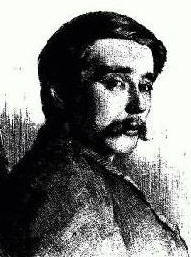
|
Per chi ama le montagne
http://www.summitpost.org/user_page.php?user_id=17266
"Deve essere stato come prendere
d'assalto il cielo." H. G. Wells
Behind the Front - 2a parte -
della 1a parte Guerra in Montagna
http://www.frontedolomitico.it/Testimonianze/FronteDolomiticoWells.htm
open library
http://www.archive.org/details/warandfutureital00welluoft
I HAVE a peculiar affection for Verona and certain things in Verona. Italians
must forgive us English this little streak of impertinent proprietorship in the
beautiful things of their abundant land. It is quite open to them to revenge
themselves by professing a tenderness for Liverpool or Leeds. It was, for
instance, with a peculiar and personal indignation that I saw where an Austrian
air bomb had killed five-and-thirty people in the Piazza Erbe. Somehow in that
jolly old place, a place that have very much of the quality of a very pretty and
cheerful old woman, it seemed exceptionally an outrage. And I made a special
pilgrimage to see how it was with that monument of Can Grande, the equestrian
Scaliger with the sidelong grin, for whom I confess a ridiculous admiration. Can
Grande, I rejoice to say, has retired into a case of brickwork, surmounted by a
steep roof of thick iron plates; no aeroplane exists to carry bombs enough to
smash that covering; there he will smile securely in the darkness until peace
comes again.
Piccola traduzione del paragrafo sovrastante: Ho un amore particolare per Verona,.. e sono
estremamente indignato nel vedere il punto dove in Piazza delle Erbe una bomba
austriaca ha ucciso 35 persone. E lo sono ancora di più nel vedere il Can Grande
a cavallo ridotto in una trincea di mattoni sormontati da lastre di ferro
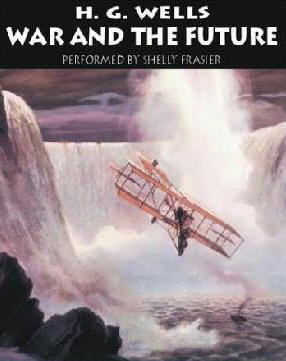 All over Venetia the Austrian seaplanes are making the same sort of idiot raid
on lighted places that the Zeppelins have been making over England. These raids
do no effective military work. What conceivable military advantage can there be
in dropping bombs into a marketing crowd? It is a sort of anti-Teutonic
propaganda by the Central Powers to which they seem to have been incited by
their own evil genius. It is as if they could convince us that there is an
essential malignity in Germans, that until the German powers are stamped down
into the mud they will continue to do evil things. All of the Allies have borne
the thrusting and boasting of Germany with exemplary patience for half a century;
England gave her Heligoland and stood out of the way of her colonial expansion,
Italy was a happy hunting ground for her business enterprise, France had come
near resignation on the score of Alsace-Lorraine. And then over and above the
great outrage of the war come these incessant mean-spirited atrocities. A great
and simple wickedness it is possible to forgive; the war itself, had it been
fought greatly by Austria and Germany, would have made no such deep and enduring
breach as these silly, futile assassinations have down between the
Austro-Germans and the rest of the civilised world. One great misdeed is a thing
understandable and forgivable; what grows upon the consciousness of the world is
the persuasion that here we fight not a national sin but a national insanity;
that we dare not leave the German the power to attack other nations any more for
ever All over Venetia the Austrian seaplanes are making the same sort of idiot raid
on lighted places that the Zeppelins have been making over England. These raids
do no effective military work. What conceivable military advantage can there be
in dropping bombs into a marketing crowd? It is a sort of anti-Teutonic
propaganda by the Central Powers to which they seem to have been incited by
their own evil genius. It is as if they could convince us that there is an
essential malignity in Germans, that until the German powers are stamped down
into the mud they will continue to do evil things. All of the Allies have borne
the thrusting and boasting of Germany with exemplary patience for half a century;
England gave her Heligoland and stood out of the way of her colonial expansion,
Italy was a happy hunting ground for her business enterprise, France had come
near resignation on the score of Alsace-Lorraine. And then over and above the
great outrage of the war come these incessant mean-spirited atrocities. A great
and simple wickedness it is possible to forgive; the war itself, had it been
fought greatly by Austria and Germany, would have made no such deep and enduring
breach as these silly, futile assassinations have down between the
Austro-Germans and the rest of the civilised world. One great misdeed is a thing
understandable and forgivable; what grows upon the consciousness of the world is
the persuasion that here we fight not a national sin but a national insanity;
that we dare not leave the German the power to attack other nations any more for
ever
Piccola traduzione ..: anche sopra Venezia si fanno simili azioni le stesse che gli
zeppelin fanno sopra il mio paese. Questi raid non hanno alcunché di strategico.
Quale mente diabolica può pensare a vantaggi bombardando un mercato. Tutti gli
alleati hanno tollerato per cinquant'anni e dato come noi Helgoland o la Francia
L'Alsazia e Lorena.
Venice has
suffered particularly from this ape-like impulse to hurt and
terrorise enemy non-combatants. Venice has indeed suffered from this war far
more than any other town in Italy. Her trade has largely ceased; she has no
visitors. I woke up on my way to Udine and found my train at Venice with an hour
to spare; after much examining and stamping of my passport I was allowed outside
the station wicket to get coffee in the refreshment room and a glimpse of a very
sad and silent Grand Canal. There was nothing doing; a black despondent remnant
of the old crowd of gondolas browsed dreamily among against the quay to stare at
me the better. The empty palaces seemed to be sleeping in the morning sunshine
because it was not worth while to wake up. . . .
Venezia ha sofferto più di ogni altra città. Non ci sono più turisti, non c'è
più commercio. Mi ci sono fermato nell'andare ad Udine e dopo timbri e controlli
in un'ora di tempo fra un treno e l'altro ho potuto uscire dalla stazione
(vecchia asburgica) e prendere un caffè sul Canalgrande.
Except in the case of Venice, the war does not seem as yet to have made nearly
such a mark upon life in Italy as it has in England or provincial France.
People speak of Italy
as a poor country, but that is from a banker’s point of view. In
some respects she is the richest country on earth, and in the matter of staying
power I should think she is better off than any other belligerent. She produces
food in abundance everywhere; her women are agricultural workers, so that the
interruption of food production by the war has been less serious in Italy than
in any other part of Europe. In peace time, she has constantly exported labour;
the Italian worker has been a seasonal emigrant to America, north and south, to
Switzerland, Germany and the south of France. The cessation of this emigration
has given her great reserves of man power, so that she has carried on her
admirable campaign with less interference with her normal economic life than any
other power. The first person I spoke to upon the platform at Modane was a
British officer engaged in forwarding Italian potatoes to the British front in
France. Afterwards, on my return, when a little passport irregularity kept me
for half a day in Modane, I went for a walk with him along the winding pass road
that goes down into France. “You see hundreds and hundreds of new Fiat cars,” he
remarked, “along here—going up to the French front.”
La gente parla dell'Italia come d'un paese povero, ma questo è un punto di vista
dei banchieri. Sotto certi aspetti questo è il paese più ricco del mondo.
Produce cibo e i suoi abitanti, in special modo le donne sono nati agricoltori.
Con gli uomini che stagionalmente emigravano, ora non risentono di conseguenze
perchè sono al fronte. Anzi si può dire che ha danneggiato chi importava mano
d'opera. Ho parlato con un ufficiale inglese che provvedeva i suoi sul fronte
francese con patate Italiane e a Modane (dogana Francese) si vedono passare
centinaia di automezzi Fiat per il fronte francese
 But there is a return trade. Near Paris I saw scores of thousands of shells
piled high to go to Italy. . . . But there is a return trade. Near Paris I saw scores of thousands of shells
piled high to go to Italy. . . .
I doubt if English people fully realise either the economic sturdiness or the
political courage of their Italian ally. Italy is not merely fighting a
first-class war in first-class fashion but she is doing a big, dangerous,
generous and far-sighted thing in fighting at all.
France and England
were
obliged to fight; the necessity was as plain as daylight. The participation of
Italy demanded a remoter wisdom. In the long run she would have been swallowed
up economically and politically by Germany if she had not fought; but that was
not a thing staring her plainly in the face as the danger, insult and challenge
stared France and England in the face. What did stare her in the face was not
merely a considerable military and political risk, but the rupture of very close
financial and commercial ties. I found thoughtful men talking everywhere I have
been in Italy of two things, of the Jugo-Slav riddle and of the question of post
war finance. So far as the former matter goes, I think the Italians are set upon
the righteous solution of all such riddles, they are possessed by an intelligent
generosity. They are clearly set upon deserving Jugo-Slav friendship; they
understand the plain necessity of open and friendly routes towards Roumania. It
was an Italian who set out to explain to me that Fiume must be at least a free
port; it would be wrong and foolish to cut the trade of Hungary off from the
Mediterranean. But the banking puzzle is a more intricate and puzzling matter
altogether than the possibility of trouble between Italian and Jugo-Slav.
Francia e Inghilterra sono obbligate a combattere gli italiani no. In Italia si
parla di due cose: dei rapporti con la futura Jugoslavia, dei confini orientali
e delle sponde dell'adriatico e dei debiti postbellici per gli armamenti. La
generosità del paese penso però che risolverà tutto. Me lo ha detto un
italiano che alla fine Fiume resterà porto franco. Sarebbe folle chiudere lo
sbocco al mare all'Ungheria !!!.
I write of these things with the simplicity of an angel, but without an angelic
detachment. Here are questions into which one does not so much rush as get
reluctantly pushed. Currency and banking are dry distasteful questions, but it
is clear that they are too much in the hands of mystery-mongers; it is as much
the duty of anyone who talks and writes of affairs, it is as much the duty of
every sane adult, to bring his possibly poor and unsuitable wits to bear upon
these things, as it is for him to vote or enlist or pay his taxes. Behind the
simple ostensible spectacle of Italy recovering the unredeemed Italy of the
Trentino and East Venetia, goes on another drama. Has Italy been sinking into
something rather hard to define called “economic slavery”? Is she or is she not
escaping from that magical servitude? Before this question has been under
discussion for a minute comes a name -for a time I was really quite unable to
decide whether it is the name of the villain in the piece or of
the maligned
heroine, or a secret society or a gold mine, or a pestilence or a delusion - the
name of the Banca Commerciale Italiana
**.
Forse sono un pò ingenuo nel trattare simili cose. Dietro l'apparente semplice
spettacolo di un paese che sta cercando di recuperare il Trentino e la
Venetia Giulia, continua un altro dramma. L'Italia è affondata in qualcosa di
piuttosto duro come si definirebbe la "schiavitù economica". E qui purtroppo
bisogna scendere a parlare della Banca Commerciale Italiana, eroina del
maligno, società segreta, miniera d'oro, o pestilenza e inganno.
Banking in a
country undergoing so rapid and vigorous an economic development as
Italy is very different from the banking we simple English know of at home.
Banking in England, like land-owning, has hitherto been a sort of hold up. There
were always borrowers, there were always tenants, and all that had to be done
was to refuse, obstruct, delay and worry the helpless borrower or would-be
tenant until the maximum of security and profit was obtained. I have never
borrowed but I have built, and I know something of the extreme hauteur of
property of England towards a man who wants to do anything with land, and with
money I gather the case is just the same. But in Italy, which already possessed
a sunny prosperity of its own upon mediaeval lines, the banker has had to be
suggestive and persuasive, sympathetic and helpful. These are unaccustomed
attitudes for British capital. The field has been far more attractive to the
German banker, who is less of a proudly impassive usurer and more of a partner,
who demands less than absolute security because he investigates more
industriously and intelligently. This great bank, the Banca Commerciale
Italiana, is a bank of the German type: to begin with, it was certainly
dominated by German directors; it was a bank of stimulation, and its activities
interweave now into the whole fabric of Italian commercial life. But it has
already liberated itself from German influence, and the bulk of its capital is
Italian. Nevertheless I found discussion ranging about firstly what the Banca
Commerciale essentially was, secondly what it might become, thirdly what it
might do, and fourthly what, if anything, had to be done to it.
Le banche in un paese così nuovo e giovane sono cosa diversa dalle nostre. !! ma
in Italia dove opera il banchiere tedesco questo è poco più di un usuraio.
Questa grande banca, la Banca Commerciale Italiana, è una banca di tipo tedesco
creata da tedeschi e diretta da tedeschi. Le sue attività si intessono ora nel
tessuto intero della vita italiana. Oggi si dice che non c'è più il loro
capitale e parimenti l'influenza
(quando Wells scrive l'Italia non ha ancora
dichiarato guerra alla Germania !!! :siamo in agosto del 16 e sono due anni che
si combatte in Europa) tanto che più sotto si precisa
To-night,” said my companion,
“I think we shall declare war upon Germany. The
decision is being made.)Tuttavia ho trovato chi discuteva di cosa fosse in primo luogo la Banca
Commerciale ed in secondo luogo cosa potesse diventare e via cosi.
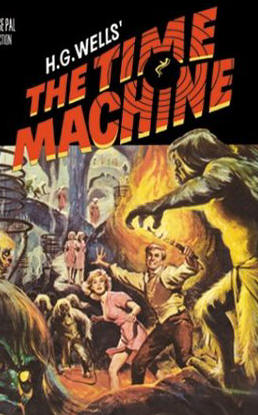 It is a novelty
to an English mind to find banking thus mixed up with politics,
but it is not a novelty in Italy. All over Venetia there are agricultural banks
which are said to be “clerical.” I grappled with this mystery. “How are they
clerical?” I asked Captain Pirelli. “Do they lend money on bad security to
clerical voters, and on no terms whatever to anti-clericals?” He was quite of my
way of thinking. “Pecunia non olet,” he said; “I have never yet smelt a clerical
fifty lira note.” . . But on the other hand Italy is very close to Germany;
she wants easy money for development, cheap coal, a market for various products.
The case against the Germans - this case in which the Banca Commerciale Italiana
appears, I am convinced unjustly, as a suspect - is that they have turned this
natural and proper interchange with Italy into the acquisition of German power.
That they have not been merely easy traders, but patriotic agents. It is alleged
that they used their early “pull” in Italian banking to favour German
enterprises and German political influence against the development of native
Italian business; that their merchants are not bona-fide individuals, but
members of a nationalist conspiracy to gain economic controls. The German is a
patriotic monomaniac. He is not a man but a limb, the worshipper of a national
effigy, the digit of an insanely proud and greedy Germania, and here are the
natural consequences. It is a novelty
to an English mind to find banking thus mixed up with politics,
but it is not a novelty in Italy. All over Venetia there are agricultural banks
which are said to be “clerical.” I grappled with this mystery. “How are they
clerical?” I asked Captain Pirelli. “Do they lend money on bad security to
clerical voters, and on no terms whatever to anti-clericals?” He was quite of my
way of thinking. “Pecunia non olet,” he said; “I have never yet smelt a clerical
fifty lira note.” . . But on the other hand Italy is very close to Germany;
she wants easy money for development, cheap coal, a market for various products.
The case against the Germans - this case in which the Banca Commerciale Italiana
appears, I am convinced unjustly, as a suspect - is that they have turned this
natural and proper interchange with Italy into the acquisition of German power.
That they have not been merely easy traders, but patriotic agents. It is alleged
that they used their early “pull” in Italian banking to favour German
enterprises and German political influence against the development of native
Italian business; that their merchants are not bona-fide individuals, but
members of a nationalist conspiracy to gain economic controls. The German is a
patriotic monomaniac. He is not a man but a limb, the worshipper of a national
effigy, the digit of an insanely proud and greedy Germania, and here are the
natural consequences.
Per noi trovare una banca che si immischia nella politica è una novità ma non
qui in Italia. Nel Veneto si sono banche agricole che si definiscono clericali
(si riferisce probabilmente alla dizione Banca Cattolica ..... ) così ho chiesto
al capitano Pirelli addetto alle P.R.
(Alberto Pirelli
padre di Leopoldo, in Cavalleria come il fratello Piero)
"come si fa ad essere clericali ? si danno
i soldi solo in cambio dei voti dei cattolici
?"
"Pecunia non olet" mi risponde lui - Il denaro non puzza
- In altri campi c'è
un abisso con la Germania e forse questi sulla Commerciale sono
sospetti infondati. È acclarato però che hanno usato la banca per favorire le imprese tedesche
e l'influenza politica tedesca contro lo sviluppo di affari nazionali italiani. Il
tedesco è un patriota monomaniaco e queste sono le conseguenze.
The case of the individual Italian compactly is this:
“We do not like
the
Austrians and Germans. These Imperialisms look always over the Alps. Whatever
increases German influence here threatens Italian life. The German is a German
first and a human being afterwards. . . . But on the other hand England seems
commercially indifferent to us and France has been economically hostile . . . ”
“After all,” I said presently, after reflection, “in that matter of Pecunia non
olet; there used to be fusses about European loans in China. And one of the
favourite themes of British fiction and drama before the war was the unfortunate
position of the girl who accepted a loan from the wicked man to pay her debts at
bridge.” “Italy,” said Captain Pirelli, “isn’t a girl. And she hasn’t been
playing bridge (gioco).”
I incline on the whole to his point of view. Money is facile cosmopolitan stuff.
I think that any bank that settles down in Italy is going to be slowly and
steadily naturalised Italian, it will become more and more Italian until it is
wholly Italian. I would trust Italy to make and keep the Banca Commerciale
Italiana Italian. I believe the Italian brain is a better brain than the German
article. But still I heard people talking of the implicated organisation as if
it were engaged in the most insidious duplicities. “Wait for only a year or so
after the war,” said one English authority to me, “and the mask will be off and
it will be frankly a ‘Deutsche Bank’ once more.” They assure me that then German
enterprises will be favoured again, Italian and Allied enterprises blockaded and
embarrassed, the good understanding of Italians and English poisoned, entirely
through this organisation. . . .
"Noi non amiamo gli austriaci e i tedeschi, ma i francesi ci sono ostili e gli
Inglesi se ne fregano, cosa avreste fatto voi ? Uno dei temi preferiti della
drammaturgia inglese d'anteguerra era la scomoda posizione di una sfortunata
ragazza che ha accettato un prestito da un uomo malvagio per pagare i suoi
debiti di gioco". "L'Italia," ha detto il capitano Pirelli "non è
una ragazza. E
non sta giocando a Bridge". Io credo che i cervelli italiani
in questo campo (bancario)
siano migliori di tanti altri. ... "Aspettate anche solo un anno più o meno dopo
la guerra," mi ha detto un'autorità inglese , "e la maschera volerà via e sarà
di nuovo una "deutsche bank". Mi assicurano che le imprese tedesche poi saranno
favorite di nuovo, quelle italiane ed Alleate boicottate.
The reasonable uncommercial man would like to reject all this last sort of talk
as “suspicion mania.” So far as the Banca Commerciale Italiana goes, I at least
find that easy enough; I quote that instance simply because it is a case where
suspicion has been dispelled, but in regard to a score of other business veins
it is not so easy to dispel suspicion.
This war has
been a shock to reasonable
men the whole world over. They have been forced to realise that after all a
great number of Germans have been engaged in a crack-brained conspiracy against
the non-German world; that in a great number of cases when one does business
with a German the business does not end with the individual German. We hated to
believe that a business could be tainted by German partners or German
associations. If now we err on the side of over-suspicion, it is the German’s
little weakness for patriotic disingenuousness that is most to blame. . .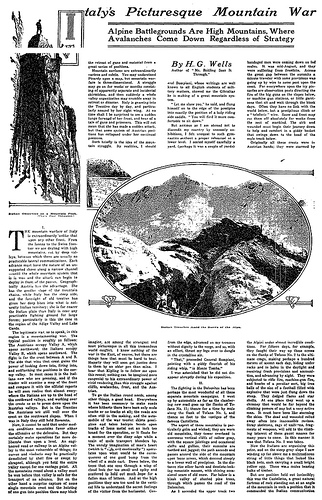
Questa guerra è uno shock per le persone ragionevoli di tutto il mondo. Tutti
hanno realizzato che i tedeschi hanno ingaggiato una guerra contro i non
tedeschi e che in molti casi quando si fanno affari con questi , l'affare non
termina con chi hai di fronte.
But anyhow I do not think there is much good in a kind of witch-smelling among
Italian enterprises to find the hidden German. Certain things are necessary for
Italian prosperity and Italy must get them.
The Italians
want intelligent and
helpful capital. They want a helpful France. They want bituminous coal for
metallurgical purposes. They want cheap shipping. The French too want
metallurgical coal. It is more important for civilisation, for the general
goodwill of the Allies and for Great Britain that these needs should be supplied
than that individual British money-owners or ship-owners should remain
sluggishly rich by insisting upon high security or high freights. The control of
British coal-mining and shipping is in the national interests—for international
interests—rather than for the creation of that particularly passive, obstructive,
and wasteful type of wealth, the wealth of the mere profiteer, is as urgent a
necessity for the commercial welfare of France and Italy and the endurance of
the Great Alliance as it is for the well-being of the common man in Britain.
Gli italiani vogliono capitali "puliti" da Francia. Gli serve carbone
bituminoso (il più sporco), noli a buon mercato. Il controllo statale del carbone è negli
interessi nazionali, piuttosto che la nascita di un approfittatore puro
semplice, è una urgente necessità questa per il benessere commerciale di Francia
ed Italia e la perseveranza della Grand'Alleanza come è per il benessere
dell'uomo comune in Gran Bretagna.
I left my military
guide at Verona on Saturday afternoon and reached Milan in
time to dine outside Salvini’s in the Galleria Vittorio Emanuele, with an
Italian fellow story-writer. The place was as full as ever; we had to wait for a
table. It is notable that there were still great numbers of young men not in
uniform in Milan and Turin and Vicenza and Verona; there was no effect anywhere
of a depletion of men. The whole crowded place was smouldering with excitement.
The diners looked about them as they talked, some talked loudly and seemed to be
expressing sentiments. Newspaper vendors appeared at the intersection of the
arcades, uttering ambiguous cries, and did a brisk business of flitting white
sheets among the little tables.
“To-night”
said my companion“I think we shall declare war upon Germany. The
decision is being made”
I asked intelligently why this had not been done before. I forget the precise
explanation he gave. A young soldier in uniform, who had been dining at an
adjacent table and whom I had not recognised before as a writer I had met some
years previously in London, suddenly joined in our conversation, with a slightly
different explanation. I had been carrying on a conversation in slightly
ungainly French, but now I relapsed into English.
Lascio la mia guida sabato pomeriggio e raggiungo Milano in tempo per
pranzare al Salvini in Galleria con un amico italiano scrittore. Il locale è
pieno e dobbiamo anche aspettare per un tavolo. E' sorprendente vedere
tanti giovani non in divisa. Stanotte, dice il mio accompagnatore, è certo che
si dichiari guerra alla Germania. Gli chiedo perchè non l'avete fatto
prima ma non ricordo la risposta. Un giovane in uniforme che pranza al tavolo a
fianco, e che subito non riconosco come lo scrittore che vidi a Londra, entra
nella nostra discussione con un'altra spiegazione.
But indeed the matter of that declaration of war is as plain as daylight; the
Italian national consciousness has not at first that direct sense of the German
danger that exists in the minds of the three northern Allies.
To the Italian
the traditional enemy is Austria, and this war is not primarily a war for any other
end than the emancipation of Italy. Moreover we have to remember that for years
there has been serious commercial friction between France and Italy, and
considerable mutual elbowing in North Africa. Both Frenchmen and Italians are
resolute to remedy this now, but the restoration of really friendly and trustful
relations is not to be done in a day. It has been an extraordinary misfortune
for Great Britain that instead of boldly taking over her shipping from its
private owners and using it all, regardless of their profit, in the interests of
herself and her allies, her government has permitted so much of it as military
and naval needs have not requisitioned to continue to ply for gain, which the
government itself has shared by a tax on war profits. The Anglophobe elements in
Italian public life have made the utmost of this folly or laxity in relation
more particularly to the consequent dearness of coal in Italy. They have carried
on an amazingly effective campaign in which this British slackness with the
individual profiteer, is represented as if it were the deliberate greed of the
British state. This certainly contributed very much to fortify Italy’s
disinclination to slam the door on the German connection.
Per gli italiani il tradizionale nemico è l'Austria e lo scopo primario è
emanciparsi dalla sua custodia. Non si possono dimenticare le frizioni
commerciali fra Francia e Italia, anche per il N. Africa.
Sembra che abbiano compreso tutto ciò ma non si risolvono in un giorno queste
cose, se ci mettiamo anche quanto successo sui noli britannici (vedi in calce).
I did my best to
make it clear to my two friends that so far from England
exploiting Italy, I myself suffered in exactly the same way as any Italian,
through the extraordinary liberties of our shipping interest. “I pay as well as
you do,” I said; “the shippers’ blockade of Great Britain is more effective than
the submarines’. My food, my coal, my petrol are all restricted in the sacred
name of private property. You see, capital in England has hitherto been not an
exploitation but a hold-up. We are learning differently now. . . . And anyhow,
Mr. Runciman has been here and given Italy assurances. . . . ”
In the train to Modane this old story recurred again. It is imperative that
English readers should understand clearly how thoroughly these little matters
have been worked by the enemy. Some slight civilities led to a conversation that
revealed the Italian lady in the corner as an Irishwoman married to an Italian,
and also brought out the latent English of a very charming elderly lady opposite
to her. She had heard a speech, a wonderful speech from a railway train, by “the
Lord Runciman.” He had said the most beautiful things about Italy.
I did my best to echo these beautiful things.
Ho fatto del mio meglio per spiegare ai due amici, che soffro al pari di loro.
Il blocco dei trasportatori e più grande di quello sottomarino. Il mio cibo, il mio carbone, la mia benzina sono razionati nel nome sacro della
proprietà privata. Sul treno per Modane questa vecchia storia è ricorsa di nuovo. È
imperativo che il lettore Inglese sappia queste cose a fondo, queste piccole
questioni che hanno lavorato per il nemico.
Then the Irishwoman remarked that Mr. Runciman had not satisfied everybody. She
and her husband had met a minister
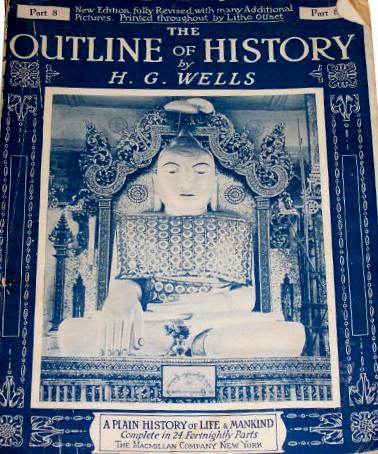 -I found afterwards he was one of the members
of the late Giolitti government—who had been talking very loudly and scornfully
of the bargain Italy was making with England. I assured her that the desire of
England was simply to give Italy all that she needed.
“But,” said the husband casually, “Mr. Runciman is a shipowner.” -I found afterwards he was one of the members
of the late Giolitti government—who had been talking very loudly and scornfully
of the bargain Italy was making with England. I assured her that the desire of
England was simply to give Italy all that she needed.
“But,” said the husband casually, “Mr. Runciman is a shipowner.”
I explained that he was nothing of the sort. It was true that he came of a
shipowning family—and perhaps inherited a slight tendency to see things from a
shipowning point of view—but in England we did not suspect a man on such a score
as that.
“In Italy I think we should,” said the husband of the Irish lady.
Poi l'irlandese ha osservato che il Sig. Runciman non aveva soddisfatto tutti.
Lei e suo marito ha incontrato un ministro-ho trovato in seguito è stato uno dei
membri della fine del governo Giolitti, che era stata molto forte e parlare
scornfully del patto che l'Italia è stata con l'Inghilterra. Mi ha assicurato
che il suo desiderio d'Inghilterra è stato semplicemente quello di dare tutto
ciò che l'Italia aveva bisogno. "Ma", ha detto il marito casualmente, "Mr.
Runciman è un armatore. "
Ho spiegato che era niente del genere. Si è vero che è venuto di una famiglia di
armatori e forse ereditato una leggera tendenza a vedere le cose da un punto di
vista armatori, ma in Inghilterra non abbiamo il sospetto di un uomo su un
cliente che come. "In Italia credo che dovremmo", ha detto il marito della
signora irlandese.
This incidental discussion
is a necessary part of my impression of Italy at war.
The two western allies and Great Britain in particular have to remember Italy’s
economic needs, and to prepare to rescue them from the blind exploitation of
private profit. They have to remember these needs too, because, if they are left
out of the picture, then it becomes impossible to understand the full measure of
the risk Italy has faced in undertaking this war for an idea. With a Latin
lucidity she has counted every risk, and with a Latin idealism she has taken her
place by the side of those who fight for a liberal civilisation against a
Byzantine imperialism.
As I came out of the brightly lit Galleria Vittorio Emanuele into the darkened
Piazza del Duomo I stopped under the arcade and stood looking up at the shadowy
darkness of that great pinnacled barn, that marble bride-cake, which is, I
suppose, the last southward fortress of the Franco-English Gothic.
“It was here,” said my host, “that we burnt the German stuff.” “What German
stuff?” “Pianos and all sorts of things. From the shops. It is possible, you
know, to buy things too cheaply—and to give too much for the cheapness.”
Questa discussione fortuita è una parte necessaria delle mie impressioni sul
Vostro paese in guerra. I due alleati occidentali e la Gran Bretagna in
particolare devono ricordare i bisogni economici Italiani ed evitare che cadano
in mano al cieco profitto privato. Devono ricordare questi bisogni anche perché
se si lasciano fuori poi diventa impossibile capire la misura del rischio
affrontato nell'impresa di questa guerra dall'Italia intera per un'idea. Con una
lucidità latina ha contato ogni rischio, e con un idealismo latino ha portato il
suo contributo per una civilizzazione liberale contro un imperialismo bizantino.
Come sono uscito dalla luminosa Galleria Vittorio Emanuele e mi sono gettato
nella buia piazza Duomo ho volto lo sguardo a quel capolavoro d'arte gotica
Franco Inglese ultima fortezza a sud .
""E 'stato qui", disse il mio ospite ", che abbiamo bruciato
la roba? tedesca".
"Che roba?" "Pianoforti e ogni genere di cose.
**
In altra parte del sito ho riassunto così la vicenda Commerciale su cui s'era
fatto e si faceva anche molto Gossip -
Capita, quando si incontrano vicende di spionaggio, di sobbalzare sulla sedia
alla lettura di certi nomi. Ma questo è un campo dove i "si dice" si sprecano.
E’ successo così anche quando è uscito il nome della Banca Commerciale Italiana,
banca famosa per essere nata da imprenditori svizzeri e tedeschi nel 1894 (salvo
per 100.000 lire sottoscritte dal Conte Alfonso Sanseverino-Vimercati nominato
Primo Presidente) e che di tedesco si trascinò per anni oneri e onori. La
Commerciale era il nido, la balia, la levatrice di tutte le principali grandi
aziende italiane nate all’inizio del 900 che prima o poi tornavano allo
sportello per curarsi le ferite o trovare acquirenti. Quando scoppiò la grande
guerra il sospetto che a manovrare le aziende militarizzate italiane fossero i
tedeschi (e ne vedremo anche i motivi) era altissimo se circolavano simili
rapporti….Fascicolo: Banca Commerciale ed Affini 11/9/1915 - Fondo: Carte di A.
Salandra Biblioteca Comunale Ruggero Bonghi di Lucera - Oggetto: Informazioni
sulla Commerciale, sulla Ansaldo (Perrone), sul giornalista Naldi e su Garroni,
ambasciatore dell'Italia in Turchia
 - "E' attorno alla Banca Commerciale che stanno tuttora raggruppati
saldamente in Italia gli interessi germanici: e questi solo dal ritorno del
giolittismo possono sperare la loro salvezza. Unico gruppo finanziario
autorevolmente opposto a quello della Commerciale è quello che fa capo alla
ditta Ansaldo. In questi giorni si sta cercando di attirare pure questo
nell'orbita della Banca Commerciale. Gira voce di una conferenza di Giolitti con
il comm. Pio Perrone, dell'Ansaldo, incontro che non sembra esserci ancora
stato, mentre si è svolto invece l'incontro tra Perrone e Fenoglio per tentare
un accordo tra i due gruppi. Inoltre il Consorzio per l'impianto di una fabbrica
di munizioni a Genova, sotto la presidenza della Camera di Commercio, sicuro
presidio della Banca Commerciale, è in sostanza un abile tentativo per
raggruppare su un terreno neutro sotto l'egida della commerciale, il gruppo
Terni, col gruppo Ansaldo e le società di navigazione, la presidenza dell'Odero,
la vicepresidenza al Perrone, ottimo mezzo di avvicinamento dei due elementi che
si vogliono fondere. Tale sforzo della Commerciale nasce forse da
un'esagerazione della campagna antitedesca in Italia svolta dai Perrone. Questa
trae, invece, le sue forze da una ben più intima e profonda convinzione del
danno che il nostro vassallaggio verso la Germania arreca alla nostra economia
nazionale". - "E' attorno alla Banca Commerciale che stanno tuttora raggruppati
saldamente in Italia gli interessi germanici: e questi solo dal ritorno del
giolittismo possono sperare la loro salvezza. Unico gruppo finanziario
autorevolmente opposto a quello della Commerciale è quello che fa capo alla
ditta Ansaldo. In questi giorni si sta cercando di attirare pure questo
nell'orbita della Banca Commerciale. Gira voce di una conferenza di Giolitti con
il comm. Pio Perrone, dell'Ansaldo, incontro che non sembra esserci ancora
stato, mentre si è svolto invece l'incontro tra Perrone e Fenoglio per tentare
un accordo tra i due gruppi. Inoltre il Consorzio per l'impianto di una fabbrica
di munizioni a Genova, sotto la presidenza della Camera di Commercio, sicuro
presidio della Banca Commerciale, è in sostanza un abile tentativo per
raggruppare su un terreno neutro sotto l'egida della commerciale, il gruppo
Terni, col gruppo Ansaldo e le società di navigazione, la presidenza dell'Odero,
la vicepresidenza al Perrone, ottimo mezzo di avvicinamento dei due elementi che
si vogliono fondere. Tale sforzo della Commerciale nasce forse da
un'esagerazione della campagna antitedesca in Italia svolta dai Perrone. Questa
trae, invece, le sue forze da una ben più intima e profonda convinzione del
danno che il nostro vassallaggio verso la Germania arreca alla nostra economia
nazionale".
E l’anno dopo ci pensava (Don) Giovanni Preziosi, interventista, antisemita poi
fascista con l’opera -
La Germania alla conquista dell’Italia -: con nota del
Prof. Maffeo Pantaleoni – Indice: «Il pangermanesimo: metodi e pericoli - Le
finalità della penetrazione germanica in Italia - Il cavallo di Troia (Per
rendere l’Italia strumento della politica tedesca); Origini e scopi della Banca
Commerciale Italiana; Le dimissioni dei Consiglieri esteri della Banca
Commerciale; La retata delle società anonime; Per favorire l’industria e il
commercio tedesco; Le informazioni riservate; Per la conquista delle industrie
italiane; La conquista della marina mercantile; Le industrie siderurgiche e
d’armamenti nelle mani della banca tedesca; La conquista delle industrie
elettriche; Nelle elezioni politiche; L’assorbimento del nostro risparmio; Lo
sfruttamento dell’emigrazione; I tedeschi domandavano la cittadinanza italiana
alla vigilia della guerra; (E la stampa?) - Giolitti e la Banca Commerciale - Un
comunicato in difesa della banca tedesca nella stampa inglese - La penetrazione
germanica in Inghilterra e il “metodo della catena”.
Ce n’era abbastanza da far saltare le coronarie a
chiunque (ma il direttore della Commerciale era Ebreo): ma in altre sedi poi lo
si taccia durante il fascismo di fare comunella con la Banca per fare le scarpe
al duce dal suo Ufficio del quotidiano “Il mezzogiorno”. Firmerà il manifesto
della razza e il 25 aprile 1945 si getterà dalla finestra con la moglie
ufficiale (da spretato).
Tutto questo chiacchiericcio nasceva anche dalla figura dei primi amministratori
delegati OTTO JOEL etichettato come Ebreo oltre che massone e FEDERICO WEILL
A.D. dal 1908 al 1914 (dimissioni obbligate) e da Giuseppe Toeplitz con la
stessa carica dal ’17: Toeplitz nasce a Varsavia nel 1866, da famiglia della
borghesia ebraica ma frequenta la facoltà di ingegneria dell'università di
Aquisgrana. Nel 1891 viene in Italia chiamatovi da Otto Joel, suo lontano
cugino. Prima dell'assunzione alla Banca Commerciale (1895) lavora alle filiali
di Genova della Banca Generale e della Banca Russa per il Commercio Estero. E'
direttore della sede di Napoli della Commerciale (1898) e di quella di Venezia
(1900) poi condirettore e direttore della sede centrale di Milano nel 1906. Nel
1912 acquista la cittadinanza italiana e prima sembra lasci anche la fede
giudaica.. Alla sede centrale trova anche FEDERICO WEILL, altro tedesco
trapiantato in Italia, già direttore della filiale palermitana del Credito
Mobiliare. Nel 1914, alla vigilia della grande guerra, le posizioni neutraliste
di Toeplitz vengono attaccate dall’interventismo nazionalista: è la nascita
della banca degli spioni.
Mancava solo il prestito obbligazionario Fiat non collocato (siamo alla vigilia
di una guerra e per gli industriali son sempre soldi che corrono) per
qualificare la Banca come Giolittiana, l’uomo della neutralità. A dir il vero
anche la Fiat si dichiarava neutralista in vista delle commesse della Marina
Tedesca. Quando Toeplitz acquista dall’ex consigliere della tedesca Mannesmann,
Eugen Hannesen, la villa di Sant'Ambrogio Olona sul lago di Varese venne
tacciato di scambiare messaggi ottici dalla torretta osservatorio con agenti
tedeschi nella vicina svizzera (Monte Generoso).
Per concludere e non dilungare oltre di una chiacchiera che lascia il tempo che
trova riporto il titolo di un recente articolo apparso sul Corriere della Sera
del
04/03/2003 - Comit (Banca Commerciale Italiana), conto aperto al signor Mussolini: Dagli archivi della banca
le prove dei finanziamenti di Toeplitz al duce e al «Il Popolo d’Italia» !!! I
finanziamenti al Popolo d’Italia da parte della Comit aumentano quando il
fascismo è al potere. «Un primo finanziamento sicuro - scrive Giorgio Fabre
- risale al
26 gennaio 1924, altro periodo di crisi del giornale, ed era di 500 mila lire.
Una seconda tranche fu versata il 9 gennaio 1925 (250 mila lire); un’altra
ancora il 27 ottobre 1925 (250 mila lire); infine il 22 febbraio 1928 altre 500
mila lire. Siamo già su tutt’altra sponda. Fonte- Quaderni di
storia. Il figlio di Fabre Lodovico asserisce poi che il padre finanziò anche D’Annunzio
che per la verità lo cercò come Ministro delle Finanze ripiegando poi su Maffeo Pantaleoni che stava da tutt’altra parte !?.
come direbbe Preziosi.
|
The Mountain War 1a parte traduzione
http://www.frontedolomitico.it/Testimonianze/FronteDolomiticoWells.htm
altre sue opere oltre quelle in immagine
The Wheels of Chance (1896)
The History of Mr Polly (1910)
Bealby: A Holiday (1915)
Love and Mr Lewisham (1900)
The First Men in the Moon (1901)
The “Prize-Taker” (From Lustige Blaetter, Berlin)
"How long will you allow this brute to
tread on your corns?"
[The allusion is to England's
attitude toward neutral shipping]
Il Pirata - "Per quanto tempo consentirai che questo bruto cammini sui
tuoi calli"? [l'allusione è all'atteggiamento dell'Inghilterra verso
i noli dei paesi neutrali]. Da sinistra l'olandese,
l'americano, l'italiano e xxxx naturalmente ante 1915 |
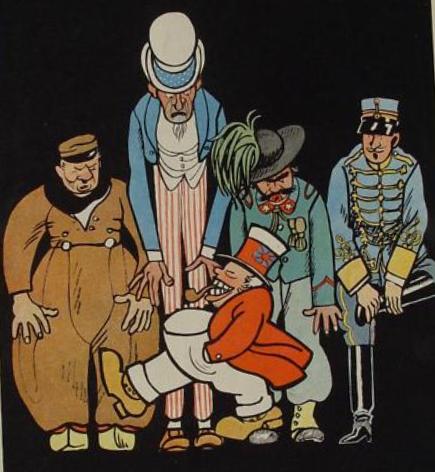 |
Torna
all'indice delle curiosità
|